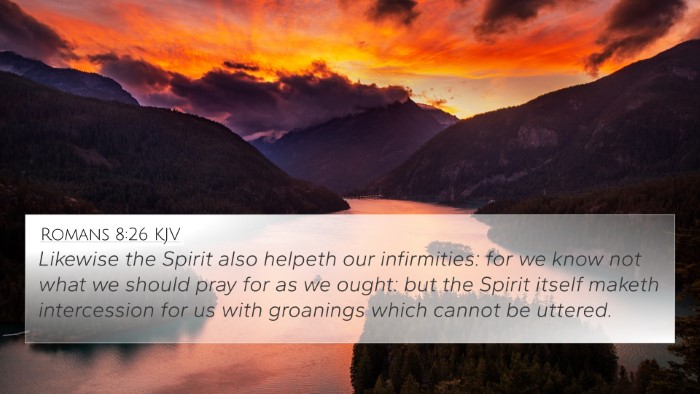Understanding 1 Samuel 1:13
Bible Verse: 1 Samuel 1:13 - "Now Hannah spoke in her heart; only her lips moved, but her voice was not heard. Therefore Eli thought she was drunk."
Verse Meaning and Context
The narrative of Hannah in 1 Samuel 1:13 reflects deep emotional and spiritual themes. Hannah, a woman devastated by her barrenness and her rival's taunts, turns to the Lord in earnest prayer. Her internal discourse illustrates the profound nature of heartfelt supplication, even when others may misunderstand her actions.
Insights from Public Domain Commentaries
-
Matthew Henry's Commentary:
Matthew Henry highlights that Hannah's silent prayer demonstrates fervor and sincerity. He emphasizes that God values the intentions of the heart over outward appearances. This moment captures the essence of true worship—communicating with God in a deeply personal manner, even when it is not outwardly visible. It encourages believers to seek God earnestly, regardless of external circumstances.
-
Albert Barnes' Notes:
Albert Barnes discusses the misunderstanding by Eli, the priest, illustrating how spiritual matters sometimes elude even the most devout leaders. He points out that Hannah's sincerity and the nature of her prayer are rooted in her profound need. This reflects a common theme of divine revelation being misperceived by human observers, inviting believers to consider their spiritual perceptions and the hidden dimensions of prayer.
-
Adam Clarke's Commentary:
Adam Clarke emphasizes the significance of Hannah’s situation in the historical context of Israel. Her prayer symbolizes the yearning for divine intervention and the hope for future hope and restoration. Clarke notes that this moment serves as a precursor to God's eventual answering of her prayers, linking it to God’s broader narrative for Israel and His people.
Related Bible Cross-References
This passage encompasses various thematic connections within Scripture. Here are some pertinent Bible cross-references that relate to 1 Samuel 1:13:
- 1 Samuel 1:15 - "But Hannah answered and said, 'No, my lord, I am a woman of sorrowful spirit...'" - This verse continues to illuminate Hannah's struggle and emotion.
- Psalms 34:18 - "The Lord is near to the brokenhearted..." - This parallels Hannah's sorrow and God's attentiveness to those in distress.
- Luke 1:13 - "But the angel said to him, 'Do not be afraid, Zacharias, for your prayer is heard...'" - Reflecting God's faithfulness in hearing the prayers of His people.
- 1 Peter 3:12 - "For the eyes of the Lord are on the righteous..." - God’s awareness of thoughts and intentions, akin to Hannah’s silent prayer.
- Romans 8:26 - "Likewise the Spirit helps us in our weakness..." - God's assistance in prayer aligns with Hannah's desperation.
- Matthew 6:6 - "But when you pray, go into your room... and your Father who sees in secret..." - Reinforcing the value of private prayer.
- Hebrews 11:1 - "Now faith is the substance of things hoped for..." - Hannah’s faith in God’s promise even without immediate evidence.
Thematic Connections
The themes of 1 Samuel 1:13 resonate throughout the Bible. They portray the human heart's struggles, God’s responsiveness, and the significance of persistent prayer:
- Prayer: Hannah’s story encourages believers about the power of individual prayer and petitioning God.
- Misperception: Eli's misunderstanding prompts reflection on how people misinterpret spiritual sincerity.
- Desperation: Hannah's barrenness symbolizes a form of spiritual and emotional desolation relatable to many scripture narratives.
- Faith: The emphasis on faith underscores Hannah’s eventual reward for faithfulness in her prayer life.
Conclusion
The narrative of Hannah in 1 Samuel 1:13 offers rich insights into the nature of heartfelt prayer, the human experience of despair, and God's attentive heart. By examining cross-references and thematic connections, believers can deepen their understanding of God's workings throughout Scripture.
Tools for Bible Cross-Referencing
Exploring Bible cross-references can enhance one's study experience and provide valuable insights:
- Bible Concordance: A reference tool that lists words and phrases found in the Bible along with their locations.
- Bible Cross-Reference Guide: Provides systematic connections and parallels across different scriptures.
- Cross-Reference Bible Study: Engaging with multiple verses can illuminate comprehensive biblical themes and principles.
- Identifying Connections: Understanding the links between Old and New Testaments enriches the contextual interpretation of verses.









